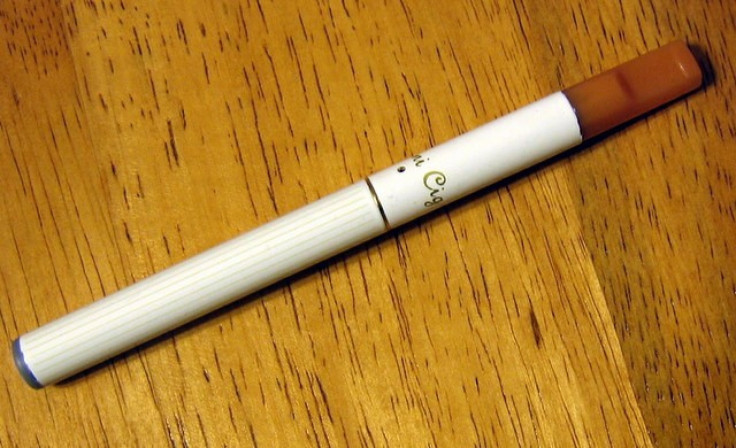E-Cigarette Explodes: Are they a Safe Alternative to Smoking?

An e-cigarette exploded in a man's mouth on Monday, severely injuring him and raising the question once again: Are e-cigarettes a safe alternative to smoking real cigs?
E-cigarettes (short for electronic cigarettes) are an increasingly popular alternative to smoking traditional cigarettes that consumers have been led to believe are safer than the rolled tobacco version.
E-cigs look like regular cigarettes, but they are made out of rigid plastic or metal and work by producing an inhaled nicotine-delivering mist that tastes, feels and looks like tobacco smoke, but without the stench.
They use heat or ultrasonics to create a mist under a process similar to that of an asthma inhaler, and the whole apparatus is aimed at reducing the health impacts of using nicotine by eliminating all the tar, carcinogens and other chemicals that are included in tobacco cigarettes.
But a chilling case out of Niceville, Fla., on Tuesday raises concerns that they may be even more dangerous.
Vietnam veteran Tom Holloway, a father of three, quit smoking due to lung health issues and took up the e cigarette as a replacement, according to local TV station WEAR. But on Monday, an e-cigarette exploded in the man's mouth, knocking out all of his teeth and part of his tongue, and leaving him covered in blood after bits of molten metal were sent flying throughout the room, WEAR reported.
And what we believe was in the battery, and whenever the battery ignited, it was basically like him holding a bottle rocket in his mouth, North Bay [Florida] Fire District Chief Butch Parker told WEAR.
The incident was reported to a national database, though investigators could not determine the brand of e-cigarette from inspecting the shrapnel it left behind. Holloway was admitted to a burn unit on Tuesday, the TV station reported.
There appear not to have been any previous reports of e-cigarettes exploding, though authorities are investigating to see if that is actually the case. Either way, the incident is concerning the thousands of people who made the switch to them from regular cigs.
Meanwhile, other information about e-cigarettes is emerging, most of which reveals that they are a much more healthy alternative to cigarettes (as long as they don't blow up while you're smoking them.)
For instance ecigarettesexposed.com, a site dedicated to the trendy new product, lists ten reasons why they are a safer alternative, including the following two:
Electronic cigarettes don't contain tar, paper, additives, tobacco and carbon monoxide like tobacco cigarettes do. These components can cause health risks in the form of respiratory disorders and malignant changes, the site says. Since electronic cigarettes don't involve tobacco combustion, they don't produce tobacco smoke that can harm both the smoker and those around him.
But the site goes on to qualify that statement in another post:
Those who sell them say they are completely harmless while health officials say otherwise, the post states. But the truth is there is not enough evidence to prove either way. And until scientific studies are done, no one really knows if e cigarettes are safe or not.
Despite these anecdotal statements and other similar ones, there is little scientific data on the topic of e cigarettes.
The FDA analyzed the contents of 19 electronic cigarettes in May 2009, some of which contained small amounts of various carcinogens, and many of which had incorrect data on the amount of nicotine they contained. After completing the study, the FDA suggested that electronic cigarette use should be discouraged.
The Electronic Cigarette Association responded by telling the New York Times the FDA tests were too narrow to reach any valid and reliable conclusions.
And the American Association of Public Health Physicians (AAPHP) supports electronic cigarettes sales to adults, as of April 2010, because the possibility exists to save the lives of four million of the eight million current adult American smokers who will otherwise die of a tobacco-related illness over the next twenty years.
So for now the jury is still out on e-cigarettes. But if you don't want to lose all your teeth, you may be smart to hold out on trying the smoking alternatives.
© Copyright IBTimes 2024. All rights reserved.











